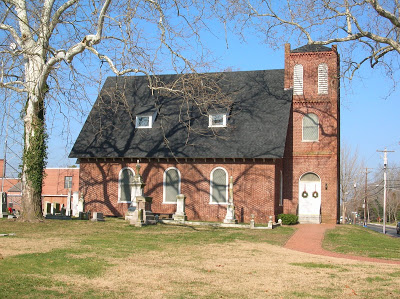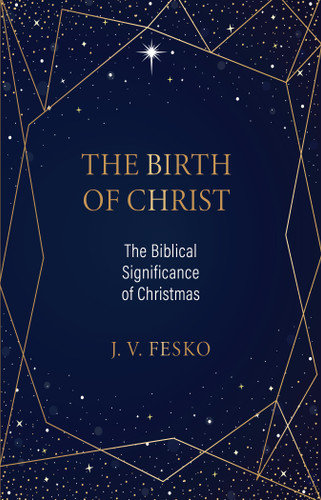Resources by Charlie Wingard
Bear with me . . . This post is going somewhere. Manokin Presbyterian Church in Princess Anne, Maryland, was organized in 1683. The structure pictured here was erected in 1765, although the Bell Tower did not go up until 1888. The establishment of Manokin Presbyterian Church was the fruit of God’s grace through the work of Francis Makemie (1658-1708), who is deservedly known as “The Father of American Presbyterianism.” Makemie planted the first Presbyterian church in Snow Hill, Maryland, and four other churches on the Delmarva Peninsula. But you can’t have Presbyterianism without a Presbytery, and under Makemie’s leadership, the first American Presbytery, the Presbytery of Philadelphia, was organized in 1706, and he was elected its first moderator. My admiration…
Read MoreThis morning Lynne and I buried our beloved dog, Jem. For 17 years and 8 months, he brought happiness to our home. His sister, Scout, passed last year. Jem and Scout came to us in 2005 – long-haired miniature dachshunds from a Kentucky breeder. At the time, I was not a pet person, so Lynne let me name them after the sibling duo of our favorite American novel. Willie Morris and my former boss, Jack Cotton, wrote books about their dogs, My Dog Skip and A Dog’s Guide to Life: Lessons from “Moose” respectively. Lacking their literary gifts and keen insights into the canine/human affinity, I’ll make only a few comments. Good parents don’t play favorites. That said, I…
Read MoreThe Completion of C. S. Lewis: From War to Joy (1945-1963), by Harry Lee Poe. Wheaton, IL: Crossway, 2022, 413 pages, $34.16, cloth. Sometimes work forces me to read. Lectures and sermons must be prepared, and reading is indispensable to the process. Whether I find the reading especially enjoyable or not, the commentaries and theological books and articles must be attended to. But apart from work, I read mostly for pleasure, and Harry Lee Poe’s three-volume biography of Lewis has been for me sheer pleasure. In addition to surveying the life of one of the twentieth century’s great writers and formidable Christian apologists, I have had opportunity during the past year to read for the first time several of Lewis’s…
Read MoreIn his new book, The Birth of Christ, John Fesko gives readers five finely crafted and theologically rich meditations on the meaning our Savior’s birth. I’ll point to but one of the book’s many gems. The Virgin Mary treasured the Old Testament. Its language shaped her praise. Reflecting on the Magnificat, Fesko writes: Bible knowledge is not only for future pastors but for every Christian. Children learn to speak by repeating their parents’ words back to them. We can apply the same principle to the children of God. We learn to speak words of praise by repeating God’s own Word back to Him. Do we know enough Scripture to speak biblically shaped words of praise back to our heavenly Father?…
Read MoreMost of us give little thought to matters of government until order breaks down. When institutions critical to life are poorly governed, people are exposed to danger and deprived of the innumerable benefits that sound structure and skilled leadership produce. This is true of government in the home, in the school, in the community, and in the church. In Well Ordered, Living Well: A Field Guide to Presbyterian Church Government, Guy Waters correctly contends that “we all need church government to live our Christian life well” (ix). The ensuing pages give clear biblical instruction on the church — its members, its officers, its assemblies, and the ordination of men to the offices of the church. About the church’s officers,…
Read MoreA highlight of this semester has been reading and discussing these books with four students at Reformed Theological Seminary, Jackson. With the exception of Southern Presbyterian Leaders, we read all books in their entirety. Rereading David Calhoun’s two-volume history of old Princeton was especially rewarding. The piety of its professors, the plan of the seminary, and its commitment to preparing theologically minded and biblically grounded pastors makes its history timely for anyone who cares about the future of the Presbyterian church in the United States. At various time, students mentioned various publications of Log College Press. I am grateful for its efforts to keep in print notable works by Presbyterians of the eighteenth and nineteenth centuries.
Read More




